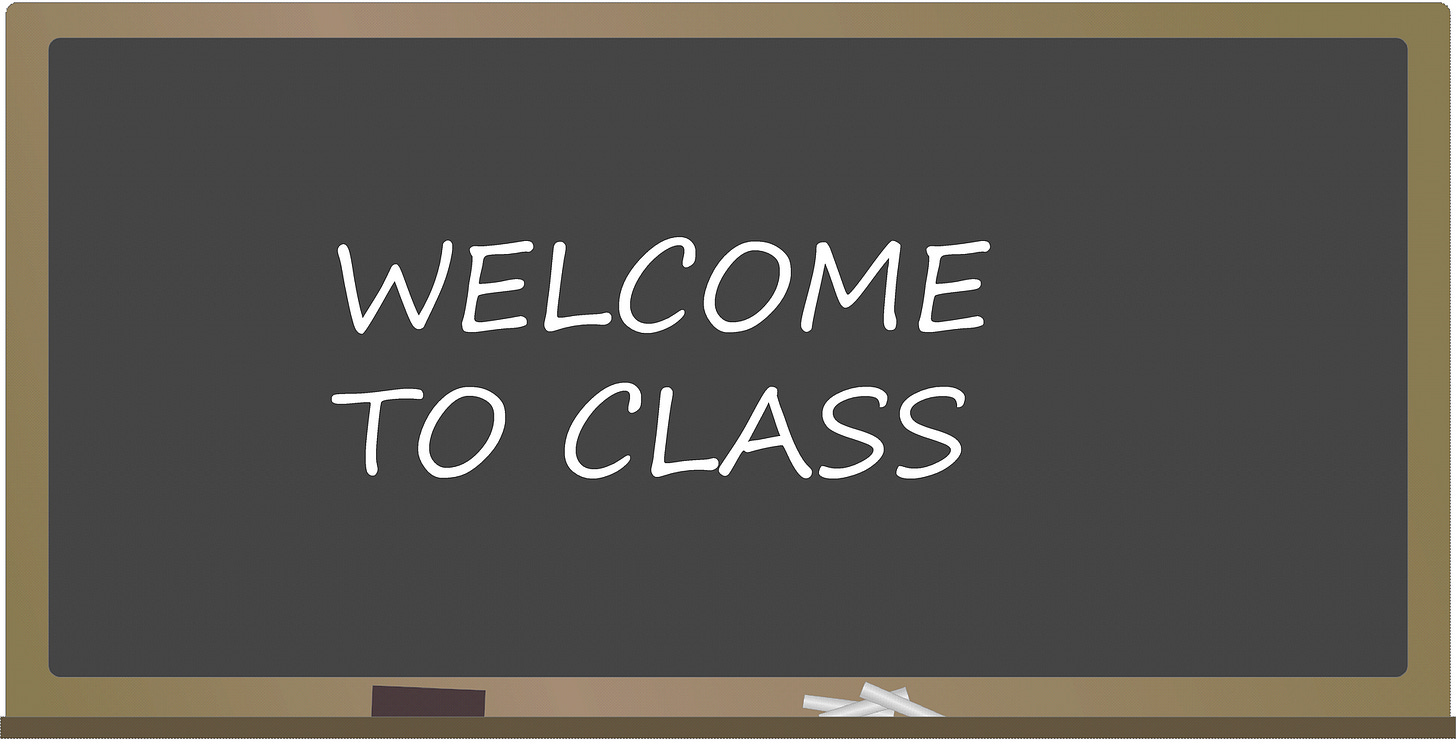Learning the Lingo
How much Portuguese do expats really need to know?

Learning Portuguese is…well…a bit hard. At least for me (I’m not fluent…yet, but I haven’t lived here very long and I’m taking my time). When Paul and I first started thinking about moving to Portugal, we were concerned about learning the lingo. How much did we have to know before we got there? Would we be able to communicate what we needed? I’m aware that Google Translate and Deepl are translation apps that you can get by with as a tourist or short-term visitor for quick brief translations, but as a newly transplanted expat, you’re not always in a situation where you can access those tools fast enough or in detail enough, like when your Portuguese-only-speaking Uber driver wants to drop you off at the wrong street that happens to have the same name as your street, in a different part of the city that you’re unfamiliar with, and you can’t figure out how to tell him quickly where he needs to go. (True story – we have many of them).
Better to be safe than embarrassed.
Although people will tell you that “everyone speaks English in Portugal,” in my experience, that’s not entirely accurate. A lot of the Portuguese do speak English extremely well – but many speak English only marginally - or they don’t want to sound bad if they try to speak English and it doesn’t come out right, so they will tell you they don’t speak any English at all (better to be safe than embarrassed - I get it).
Can you get by? Sure. In most cases. But is that enough if you’re serious about living in Portugal as a foreign resident? Personally, I think not.
You can get lazy.
You can get lazy putting off learning the language even when you finally settle in Portugal (I’ve been guilty of this). Especially if you live in an urban area like Lisbon, Porto, or Cascais, or in the tourist areas of the Algarve, you can get by for the most part as there’s a lot of English-speaking expats to chat with and most hotels and restaurants in the tourist areas have English speaking staff. But it doesn’t always afford you the best experiences because you can’t have conversations with the actual people who were born here if they don’t know a lot of English and you don’t know a lot of Portuguese. And that’s a shame because it limits you to the types of opportunities and relationships you can have all because of a language barrier.
Expats are obsessed with conquering language proficiency.

It’s true. Not so much for me, but I do know many others who feel this way. The reason I think so many expats are obsessed with conquering language proficiency is because you cannot become a Portuguese citizen or permanent resident without passing a Portuguese language proficiency test (in most instances – there are a few exceptions). People who are on D7 visas, the most popular way to gain residency in Portugal, can renew their temporary visas after 2 years. That renewal becomes good for another 3 years. So, after a total of 5 years, you are eligible to apply for citizenship or permanent residency providing that you pass a language proficiency test (it’s a low bar as you only have to score 55% to pass). If you don’t pass the test, or if you don’t want to learn enough Portuguese to become proficient, you can still stay in the country as a temporary resident.
There are Portuguese language schools that you can attend (if you can get in) that teach you the language. If you pass the course (I’ve been told it’s pretty intense), then you get a certificate that says you are language proficient so you don’t have to sit down and take the actual exam.
Maybe I’ll regret saying this, but I personally believe that after 5 years, if I don’t know enough Portuguese to pass a basic level language test…I probably shouldn’t be living in the country.
Plus, I don’t want to go to class.

I really don’t want to go to class. I’m having too much fun exploring my new country! I guess attending classes is a way to socialize, but Paul and I have been fortunate to have already met a lot of people without having to attend school to do so. I’m going to try to keep it that way.
Word of warning - don’t bite off more than you can chew.

If you’re in the middle of gathering documents for your visa, or selling your home, or downsizing and packing, or if you’re on a scouting trip, I don’t recommend trying to learn anything more than the basics while you’re stressing over all the important, time-consuming details of moving to Portugal – I speak from personal experience here. Better to wait until you’re settled in your new country so you can give it your best attention; otherwise, the stress will overpower and delay your ability to learn and retain.
So how much lingo do you really need to know?
Not being a language professional, I decided to ask one. So, that’s the question I posed to Jessica Sintra. Born in Silves, Portugal, Jessica is a native Portuguese language teacher. I first met Jessica virtually while I was still living in the States. Paul and I wanted to learn a some of the language and we hired Jessica to help us get a head start on the basics that would get us by until we were settled in Portugal. Our classes were held via Zoom and continued that way once we arrived in Portugal.
Jessica has experience teaching Portuguese to a variety of students from several countries – from old people like me and Paul, to young professionals on a work visa, and everyone else in-between. She has helped many of her students successfully pass the Portuguese language proficiency test. She’s energetic, patient, and creative and prefers to tailor language learning to your lifestyle – an approach that makes sense to me since one size of language learning does not fit all.
Here’s some advice from Jessica when thinking about how much lingo you should learn:
Learning Portuguese should be a gradual approach. Learning the basics based on what your lifestyle will be in Portugal is the first step on your journey to Portuguese language proficiency. “It’s a balanced approach,” said Jessica. “Start with the basics such as I need water, I need help, please, thank you, hello, good morning, good evening, excuse me, goodbye, may I have the check please. Focus on the phrases that are essential to your lifestyle in Portugal and that will help you to get around. I encourage my students to focus more on the sounds and vocabulary rather than trying to learn the technical aspects of Portuguese like grammar.”
Taking a crash course or trying to learn the language when you don’t really have the time or feel pressured to do so is not the best way to learn. “Learning out of fear is a bad motivation, but learning because you want to feel like you belong to the new place you choose to call home is the perfect reason. Even though time might be of the essence, do it in a thoughtful manner.” said Jessica.
Confidence. The opposite of ‘Better to be safe than embarrassed.’ It’s important to learn in a safe environment where you won’t feel embarrassed if you make a mistake. “This is where I feel it’s important to have one-on-one language learning so you can bounce-back words, phrases and sentences and not feel intimidated,” said Jessica. “Once you have confidence in the basics, it becomes easier to learn more of the language.”
What to look for in a Portuguese language teacher.
I asked Jessica what people should look for in a Portuguese language teacher. Here are her suggestions:
When you’re trying to learn a new language, it’s a lot like when you’re playing tennis. You need a partner. That’s where a one-on-one teacher can help.
Your teacher should be very attentive to you, understanding where you are, what you want to achieve and what your lifestyle is. A teacher should be supportive always and never judgmental.
Some teachers focus a lot on the grammar aspect of the language and not exactly in addressing the student's unique needs in order to overcome the tendencies that can compromise progress.
You need to gain a level of confidence which is what a good language teacher will provide for you – a safe place to test out your language skills without feeling embarrassed or afraid you’ll say the wrong thing. “When you’re a kid, the first people you speak with are your parents and immediate family. You speak with who you are more familiar with. It builds your core. That’s what a language teacher should be able to provide,” she said.
What about language apps and classrooms?
“Language apps are great, but you can only listen to yourself speak the words or listen to the words on the app. You don’t have someone to whom you can bounce-back those words and phrases. Knowledge is not a substitute for experience,” she said.
“I get a lot of students who come to me after they have tried both apps and the classroom approach,” she said. “I think people go to schools mostly because it’s cheaper or because of the social aspect. If there are several people and it’s a one/two-hour class, you’re going to be listening to a lot of people who are making a lot of the same mistakes you are, but it’s going to be more difficult for you to practice the act of having a back and forth conversation which is one of the most important aspects of speaking a language.”
Classes in schools don’t provide class recordings, so you cannot go over things once you leave the classroom. “Reading Portuguese is different than speaking it and how it sounds,” she said.
A lot of the schools only speak in Portuguese, which complicates things when you are a pure beginner. Sometimes the bureaucratic aspect of these robust businesses creates less flexible and interactive learning environments.
If you want to learn more about Jessica, she offers a complimentary consultation. You can learn more about her approach to learning European Portuguese by visiting her website, Native Portuguese.
What do you think?
Have you started to learn Portuguese? What have your experiences been – classroom, one-on-one, language app or a combination? I’d love to know your thoughts. Leave a comment if you’d like to share with me and my readers.
Thank you for reading Our Portugal Journey. This blog is a subscriber supported publication but has no paywall – in other words, you can subscribe for free and receive all the content. However, if you find my content valuable, please consider becoming a Supporting Subscriber for a nominal fee either on a monthly or annual basis right here. Just want to buy me a glass of wine? You can do that here.
Until next time…
Obrigada!
Carol.




Another great article, Carol! I especially like -- and commend you for -- your all-inclusive attitude (rather than all or nothing). We've published a number of learning-the-language related stories in Portugal Living Magazine ... but nothing from this perspective. Would you like us to publish it in an upcoming issue? Your "Experiences with UPakWeShip" story will be in our next (Autumn) issue, available next month! /bruce
Great article and understanding that not everyone learns the same way. Language has always been hard for me. I think my scientific side doesn't always make language easy.
I applauded your thinking if you are going to live there knowing the language should be a goal.